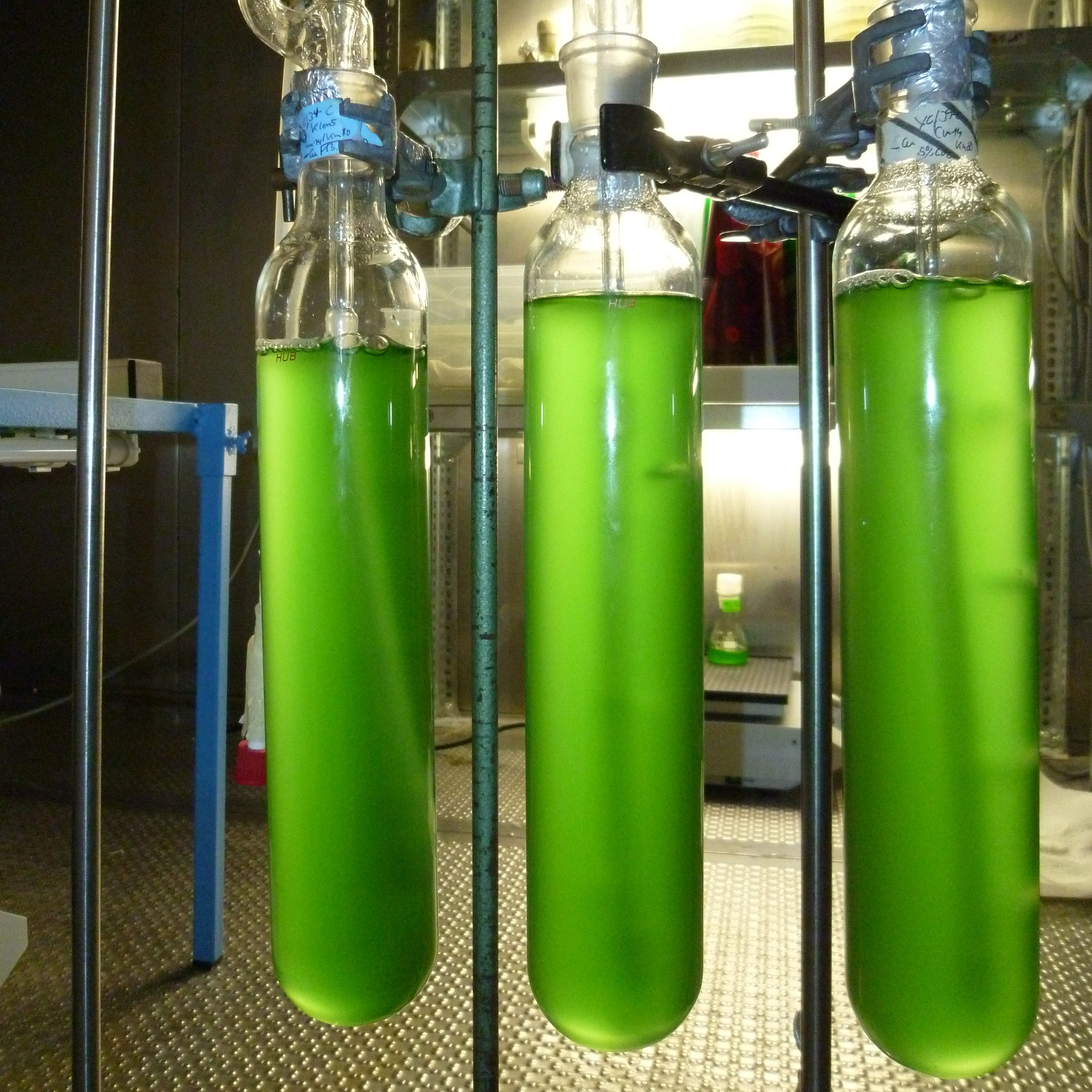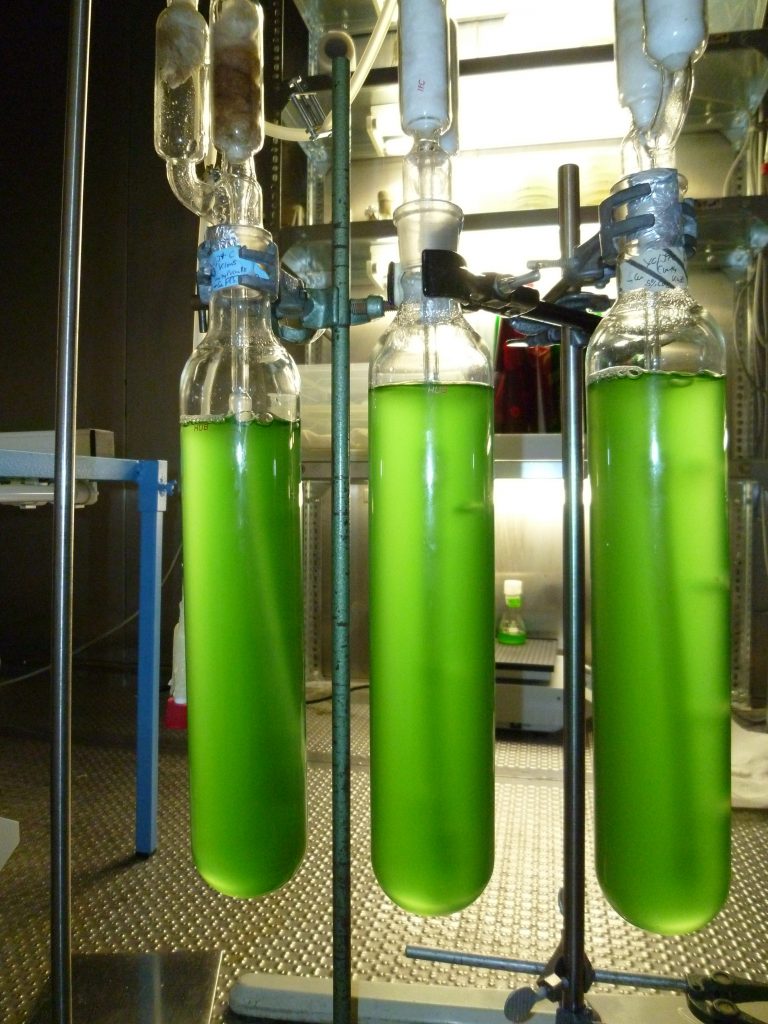

Cyanobacteria can be cultivated easily in freshwater as well as in marine water. Many cyanobacteria grow very fast and in contrast to eukaryotic algae some are able to fix atmospheric nitrogen. Large scale cultivation of cyanobacteria is already established in order to produce biofules or high value products such as vitamins and essential fatty acid.
The aim of this project is to explore the potential of cyanobacteria for biotechnology. We are interested in the production of ethanol, ethylene and storage compounds. In addition, cyanobacteria synthesize the storage compound cyanophycin, a water-insoluble polymer consisting of the amino acids aspartate and arginine.
Key publications:
Lippi L, Bähr L, Wüstenberg A, Wilde A, Steuer R. (2018) Exploring the potential of high-density cultivation of cyanobacteria for the production of cyanophycin. Algal Research 31, 363-366
David C, Schmid A, Adrian L, Wilde A, Bühler K. (2017) Production of 1,2-propanediol in photoautotrophic Synechocystis is linked to glycogen turn-over. Biotechnol. Bioeng. 115, 300-311
Kuchmina E, Klähn S, Jakob A, Bigott W, Enke H, Dühring U, Wilde A. (2017) Ethylene production in Synechocystis sp. PCC 6803 promotes phototactic movement. Microbiology doi: 10.1099/mic.0.000564.
Kopka J, Schmidt S, Dethloff F, Pade N, Berendt S, Schottkowski M, Martin N, Dühring U, Kuchmina E, Enke H, Kramer D, Wilde A, Hagemann M, Friedrich A. (2017) Systems analysis of ethanol production in the genetically engineered cyanobacterium Synechococcus sp. PCC 7002. Biotechnol. Biofuels doi: 10.1186/s13068-017-0741-0.
Trautmann A, Watzer B, Wilde A, Forchhammer K, Posten C. (2016) Effect of phosphate availability on cyanophycin accumulation in Synechocystis sp. PCC 6803 and the production strain BW86. Algal Research 20, 189-196.
Dienst D, Georg J, Abts T, Jakorew L, Kuchmina E, Börner T, Wilde A, Dühring U, Enke H, Hess WR. (2014) Transcriptomic response to prolonged ethanol production in the cyanobacterium Synechocystis sp. PCC 6803. Biotechnol. Biofuels 7, 21.
Previous funding:
- e:Bio-Innovationswettbewerb Systembiologie Modul II “Cyanosys – Systembiologie der Produktion von Biokraftstoffen durch Cyanobakterien”
- Forschungsprogramm Bioökonomie BWB „Mikroalgen: CYANOFOOD – Strategien zur Maximierung des Potenzials von Mikroalgen für die Produktion von essenziellen Aminosäuren in Photobioreaktoren“